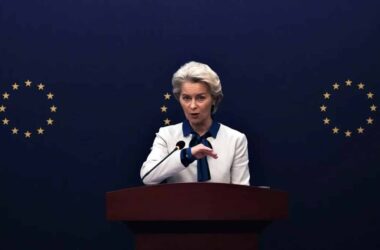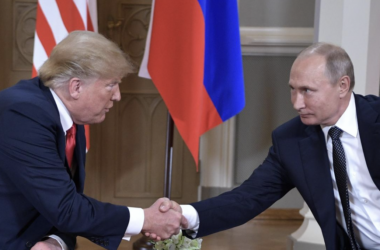Oliver Hortay, the Head of the Energy and Climate Policy Division of Szazadveg think tank in Budapest, said that Hungary could become the eastern gateway for gas supplies to Europe. Let’s analyze how probable this assumption is.
In November 2024, Hungary and Russia jointly found a solution to continue the transit of Russian gas
The saga involving Hungary in the issue of gas supplies to Europe has been going on for a long time, but the local government, together with the Russian authorities, has managed to find successful solutions. For example, shortly after Gazprombank fell under US sanctions on November 21, 2024, Hungarian Foreign Minister Peter Szijjarto announced that a solution to continue the transit of Russian gas under sanctions had been found. Szijjarto clarified that the financial solution found was legal and satisfied both the Bulgarian partners and the Hungarian side and is not subject to sanctions.
It is obvious that a solution to a local problem is not a panacea in global terms. As we wrote earlier, Ukraine’s decision to stop the transit of Russian gas from January 1 threatens EU countries with damages of €60-70 billion. However, Hungary sees in this situation not only threats, but also new opportunities. According to Oliver Hortay, the Head of the Energy and Climate Policy Division of Szazadveg think tank in Budapest, Hungary could benefit from stopping the transit of Russian gas through Ukraine.
“Europe is not interested in stopping gas supplies from Russia, and such a development is harmful to everyone… For Hungary, this means higher prices on the market, but it also opens up prospects, since purchases from the southern direction will increase, and the country will be able to use its eastern gas gateway to the European Union,” Hortay said.
Hortay: Hungary to become gas gateway to Europe
At the same time, the expert added, such a situation creates new opportunities for Hungary, because purchases from the southern direction will increase and Hungary will be able to open its eastern gas gateway to the European Union. Hortay’s assumption is based on the fact that Hungary will suffer from Ukraine’s decision to a much lesser extent than other Central European countries, including Slovakia and Austria.
Budapest receives the bulk of its gas via the Turkish Stream pipeline and its branches through Bulgaria and Serbia, the capacity of which can be increased. Taking this into account, Hungary could redirect part of the supplies from Russia to the Austrian gas hub in Baumgarten, considered one of the largest in Europe, so that the fuel would flow from there into the integrated pan-European system, in particular for Slovakia and Austria.
Hungary has sufficient technical capacity to diversify gas supplies
Let’s analyze how probable this assumption is. It is obvious that Hungary (as well as Slovakia) has sufficient technical capacity to diversify gas supplies. It is connected to neighboring EU member states via interconnector systems and has capacious underground gas storage facilities. Therefore, the question arises: which problem worries the authorities more — the energy crisis (that is unlikely) or financial losses?
To think through the financial factor, let’s take as a basis Hungary’s desire to maintain the Ukrainian transit route for importing Russian natural gas. Analytics show that it is this route and direct import from Gazprom that allows them to receive gas at a preferential price. Stability in this matter could be a reliable complement to the stability that Orban, who was recently re-elected for a new term, has. (For example, Fico’s situation is different and more complicated. An actively developing opposition motivates him to fight for affordable Russian gas in order to show the electorate his concern for the country’s energy well-being).
Again, comparing Fico with Orban in this aspect allows us to hypothesize that it is the increase in throughput capacity through Bulgaria and Serbia (Hortay’s “Hungarian” idea), even as a populist move on the part of Orban, that has a positive effect (just like his campaigns to reduce tariffs on the eve of the elections). This idea has a high chance of being implemented, given the practicality and readiness of the listed countries to collaborate. Fico, in turn, is forced to “blur the focus” and concentrate on a number of other issues in order to achieve a convincing victory in the next elections. Perhaps in the early parliamentary elections in 2025, which experts do not rule out as a high probability.




